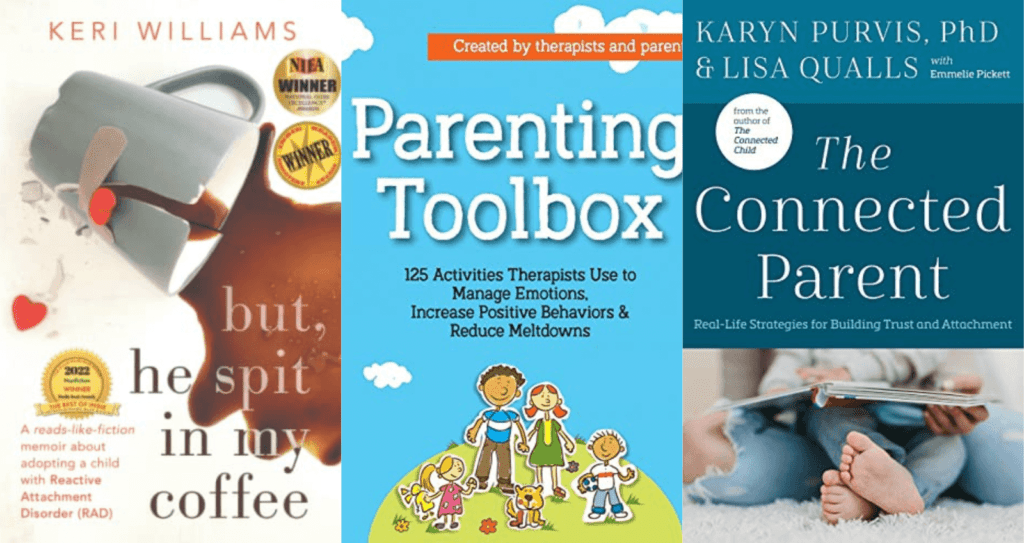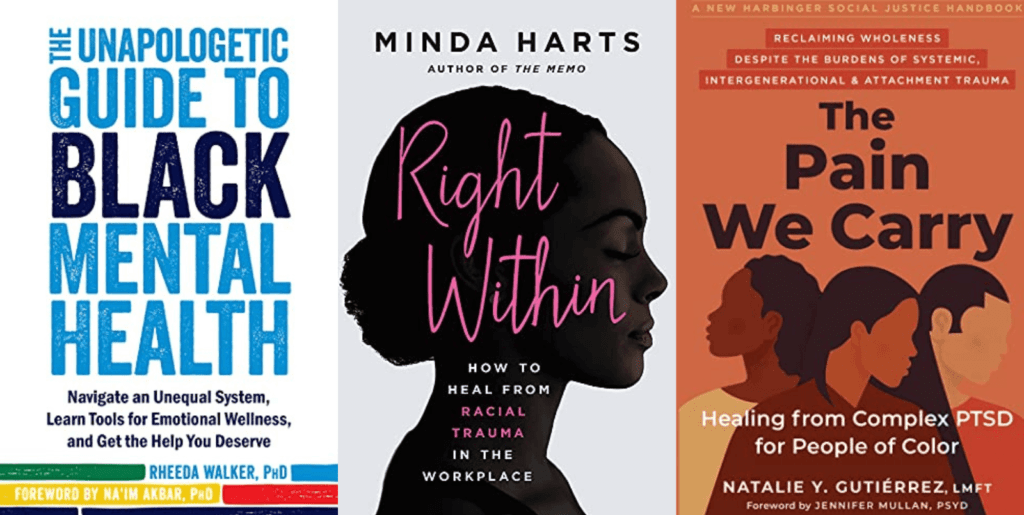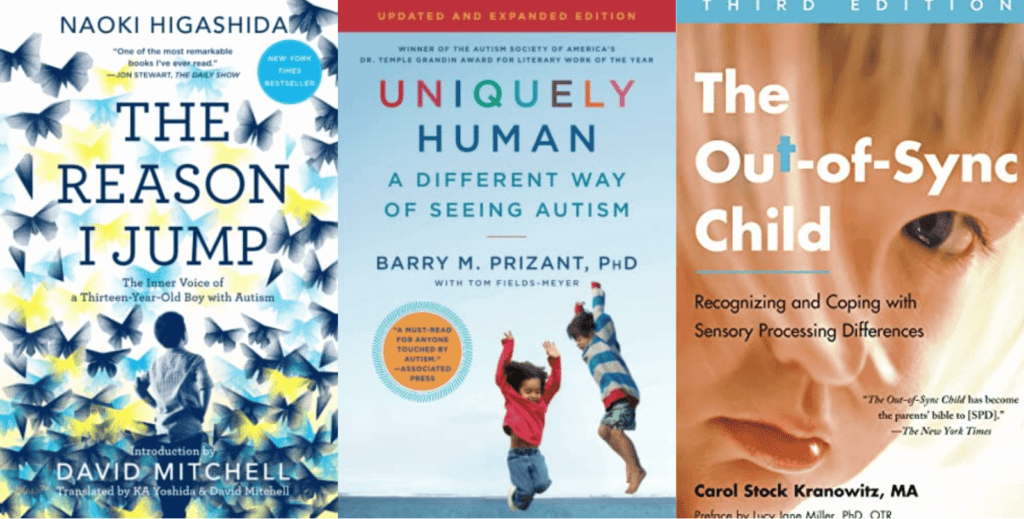The following are some of the best reactive attachment disorder books.
Disclosure: Some of the links below are affiliate links. This means that, at zero cost to you, I will earn an affiliate commission if you click through the link and finalize a purchase.
What Is Reactive Attachment Disorder?
Reactive Attachment Disorder (RAD) is a rare but serious condition that can develop in children who have experienced significant neglect or trauma at an early age, typically before the age of five.
It is characterized by difficulties forming and maintaining healthy emotional bonds with others, often leading to severe social and emotional issues.
Children with RAD may have trouble trusting others and struggle with forming secure attachments.
They may exhibit avoidant behaviors, resist affection, and have difficulty expressing or receiving love and care.
These challenges can significantly impact their relationships, both in childhood and throughout their lives.
The causes of RAD are complex and can vary from case to case, but often involve experiences of neglect or trauma, such as prolonged hospitalization, abuse, or multiple changes in caregivers.
Early intervention and therapy, including attachment-focused approaches, play a crucial role in helping children with RAD develop healthier relationships and improve their overall well-being.
It is important to note that RAD is a complex mental health disorder and should be diagnosed and treated by qualified mental health professionals.
If you suspect a child may have RAD, it is recommended to seek professional help for a proper evaluation and appropriate intervention.
Reactive Attachment Disorder Books
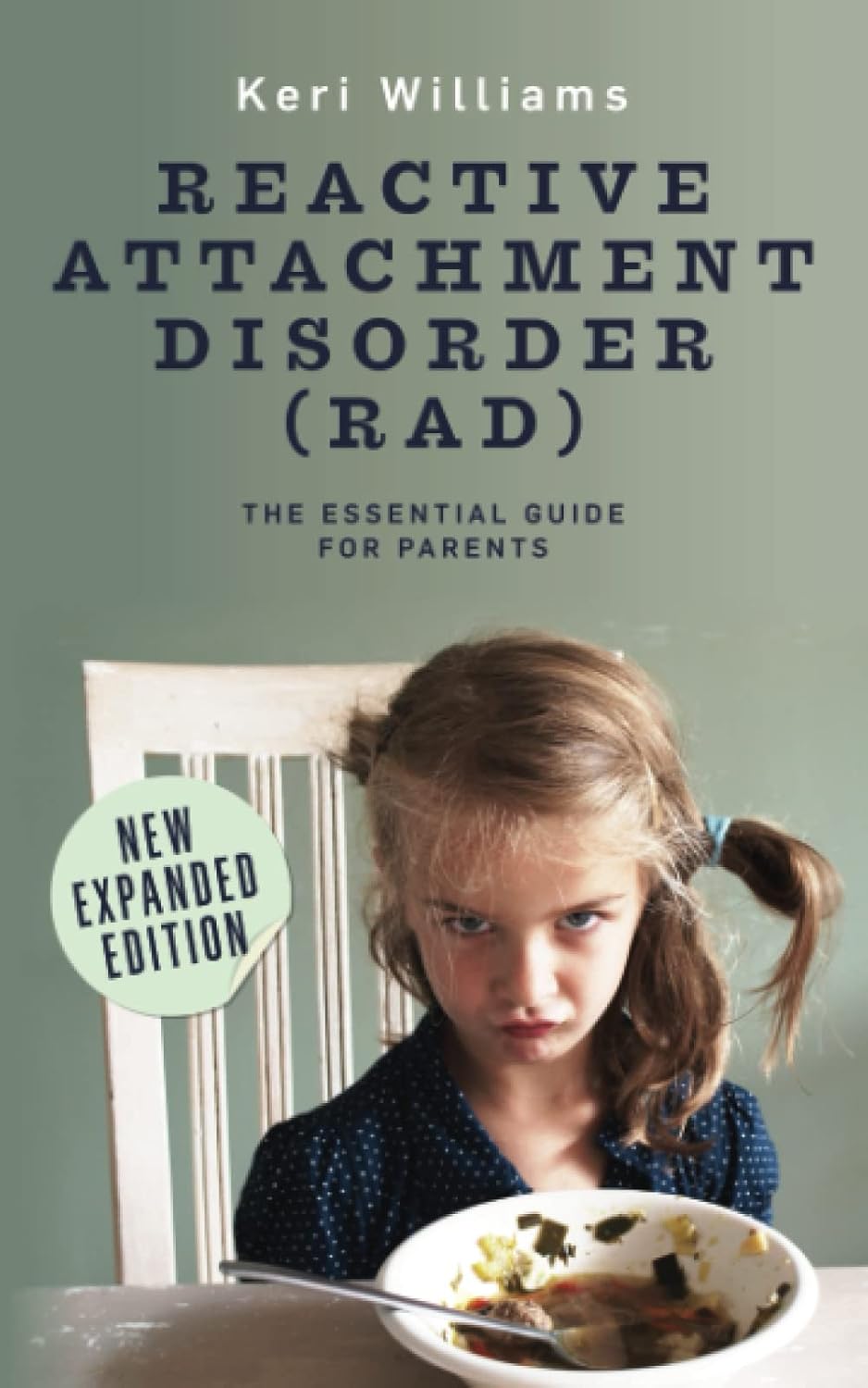
1. Reactive Attachment Disorder (RAD)
By Keri Williams
The book offers practical suggestions to help you:
- Understand developmental trauma and Reactive Attachment Disorder (RAD)
- Learn tips and tricks to help you to navigate “the system”
- Get resource recommendations that will provide a way forward
Related: How To Feel Your Feelings? Top 9 Difficult Emotions To Cope With In Healthy Ways
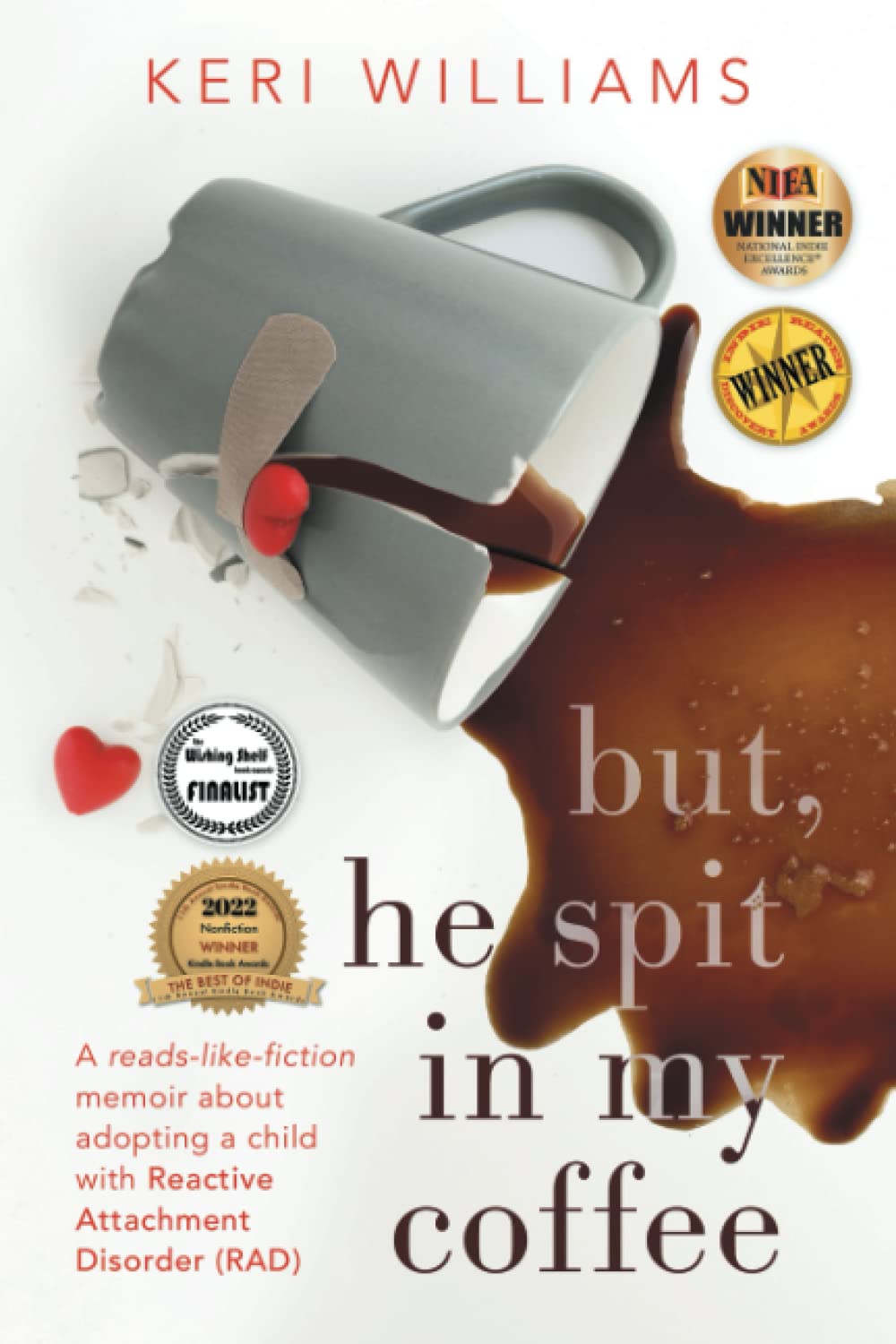
2. but, he spit in my coffee
By Keri Williams
A reads-like-fiction memoir about adopting a child with Reactive Attachment Disorder (RAD)
Based on a shocking true story, this reads-like-fiction memoir exposes the dysfunctions of the child welfare and mental health systems and how they fail kids with RAD and their families.
The gripping and heart wrenching true story of a desperate mother who must grapple with impossible choices as her young son becomes too dangerous to live at home but is only growing bigger, stronger, and more violent while in treatment.
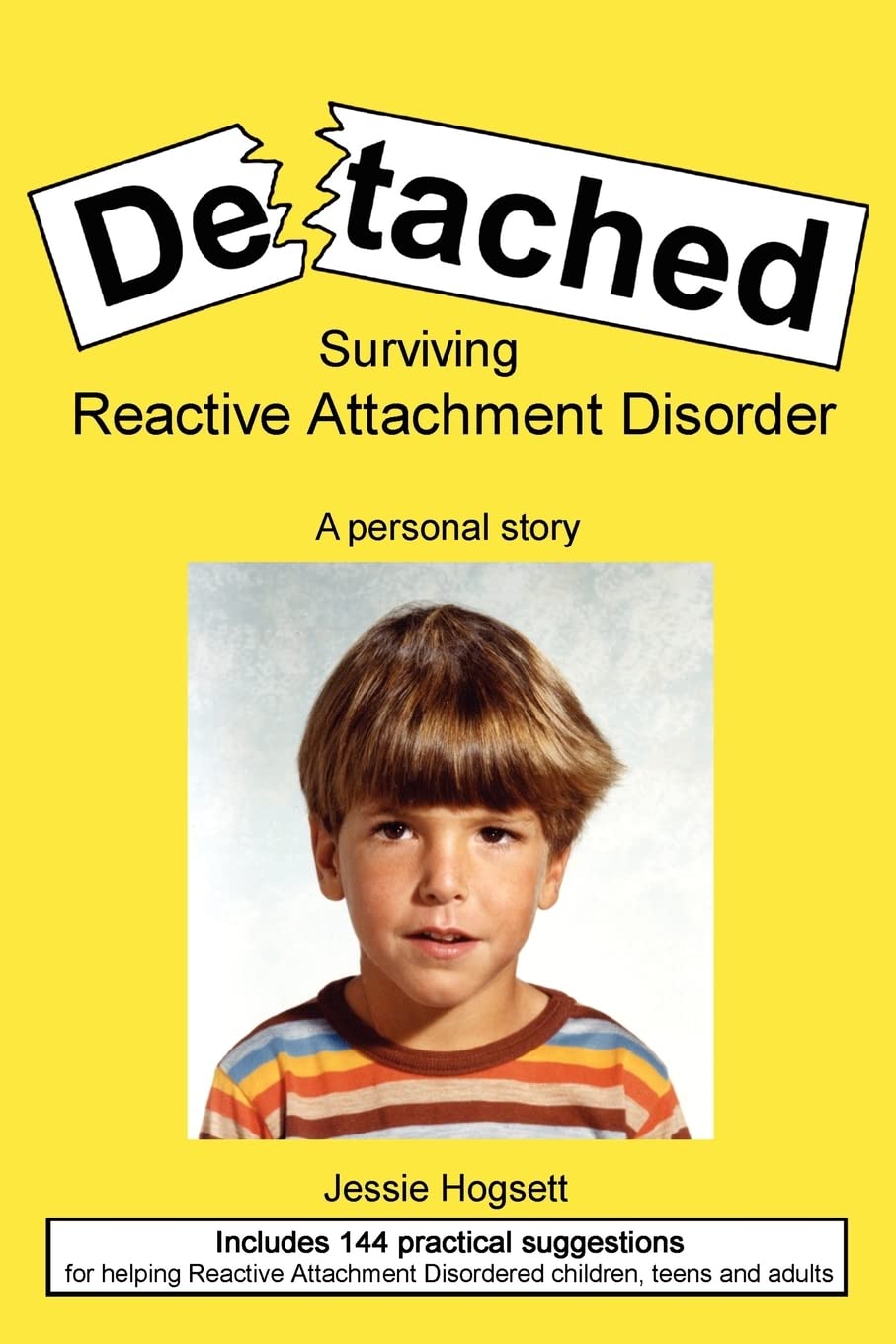
3. Detached: Surviving Reactive Attachment Disorder
By Jessie Hogsett
DETACHED! SURVIVING REACTIVE ATTACHMENT DISORDER is the true story of a young boy who never “attached” or “bonded” with his alcoholic mother. He felt unloved, uncared for, unsafe, sad, lonely and extremely angry. As he grew up, he, like most Reactive Attachment Disordered kids, acted out, exhibiting severely antisocial, even violent, behavior. You’ll travel back in time to view a young child’s life through his own eyes. You’ll see an innocent boy become a severely emotionally disturbed teen. Then, against all odds, you’ll read about miracles few ever thought possible.
Related: Best 99 Coping Skills (+FREE Coping Worksheets)
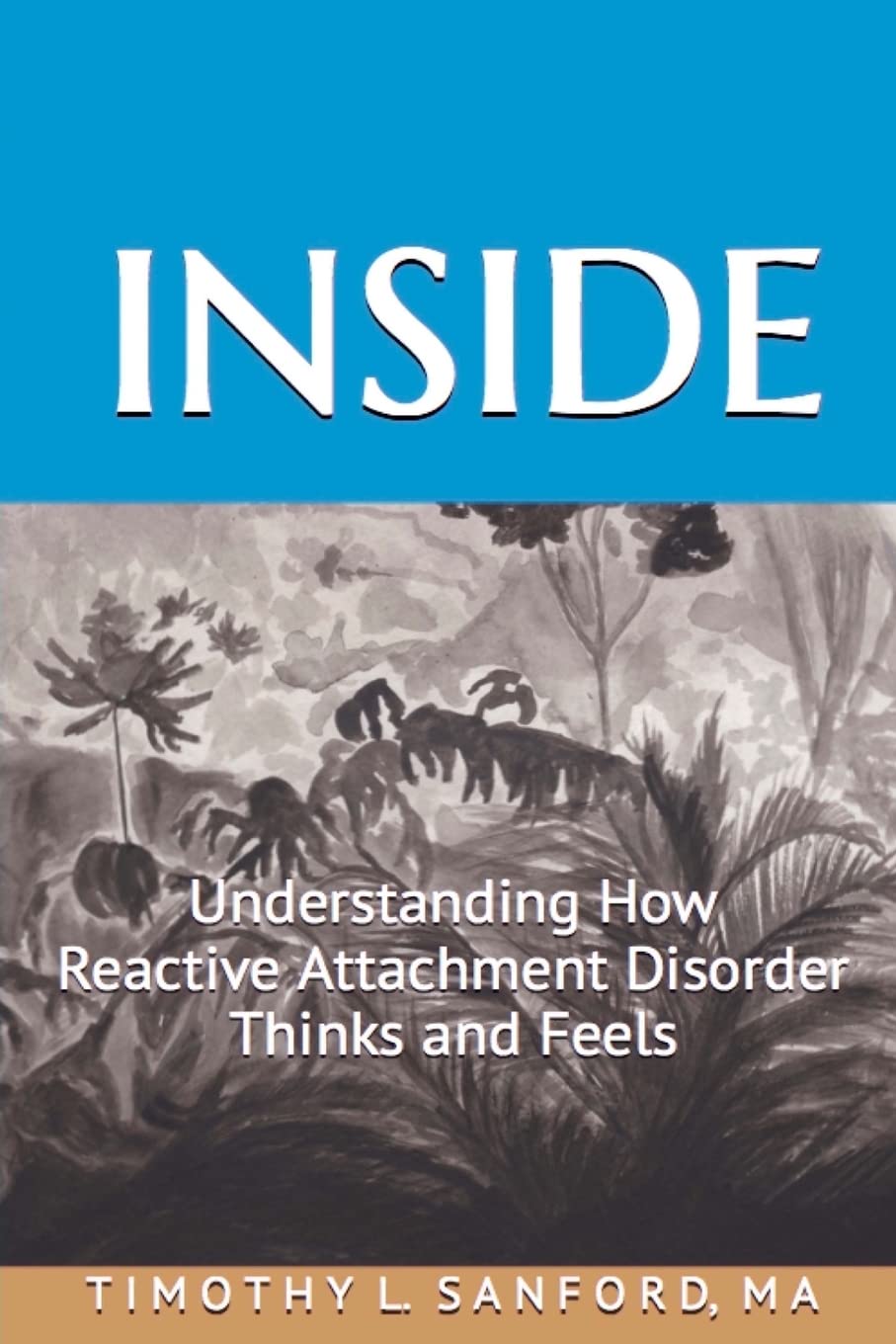
4. Inside: Understanding How Reactive Attachment Disorder Thinks and Feels
By Timothy L Sanford MA
This book gives helpful insight into the world of R.A.D. that will enable, therapists, families and friends, as well as those diagnosed, to better understand this “jungle” like world. INSIDE is written for professionals in the field of mental health with an Afterword that provides specific treatment information that professionals may use in their practices. This resource can also be a valuable resource for others seeking information on this disorder.
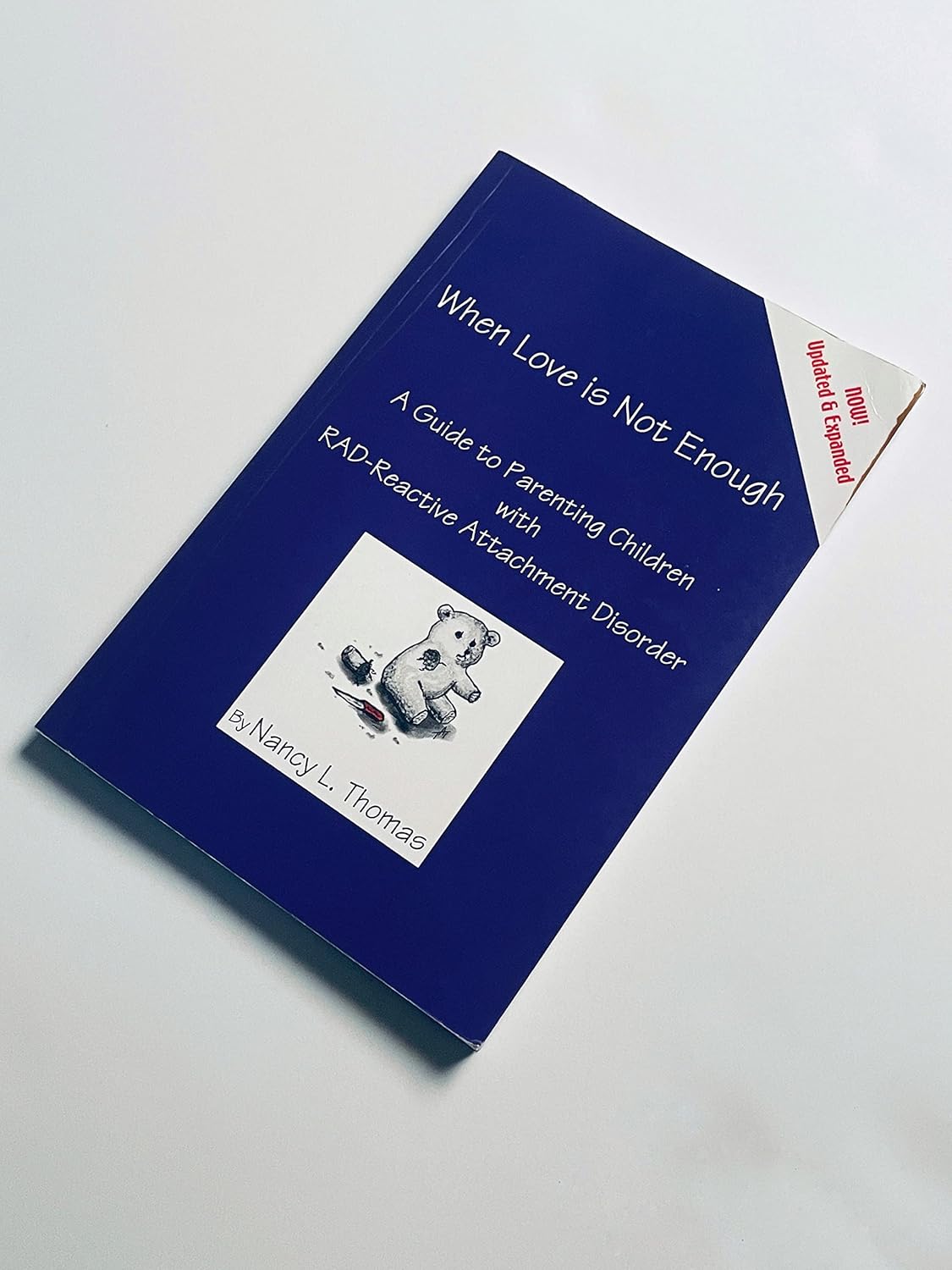
5. When Love Is Not Enough
By Nancy Thomas
When Love is Not Enough: A Guide to Parenting Children with RAD-Reactive Attachment Disorder brings hope and healing tools to parents and professionals working to help challenging children. Effective interventions, a full step by step plan, clearer insight and understanding make a powerful difference in helping children heal.
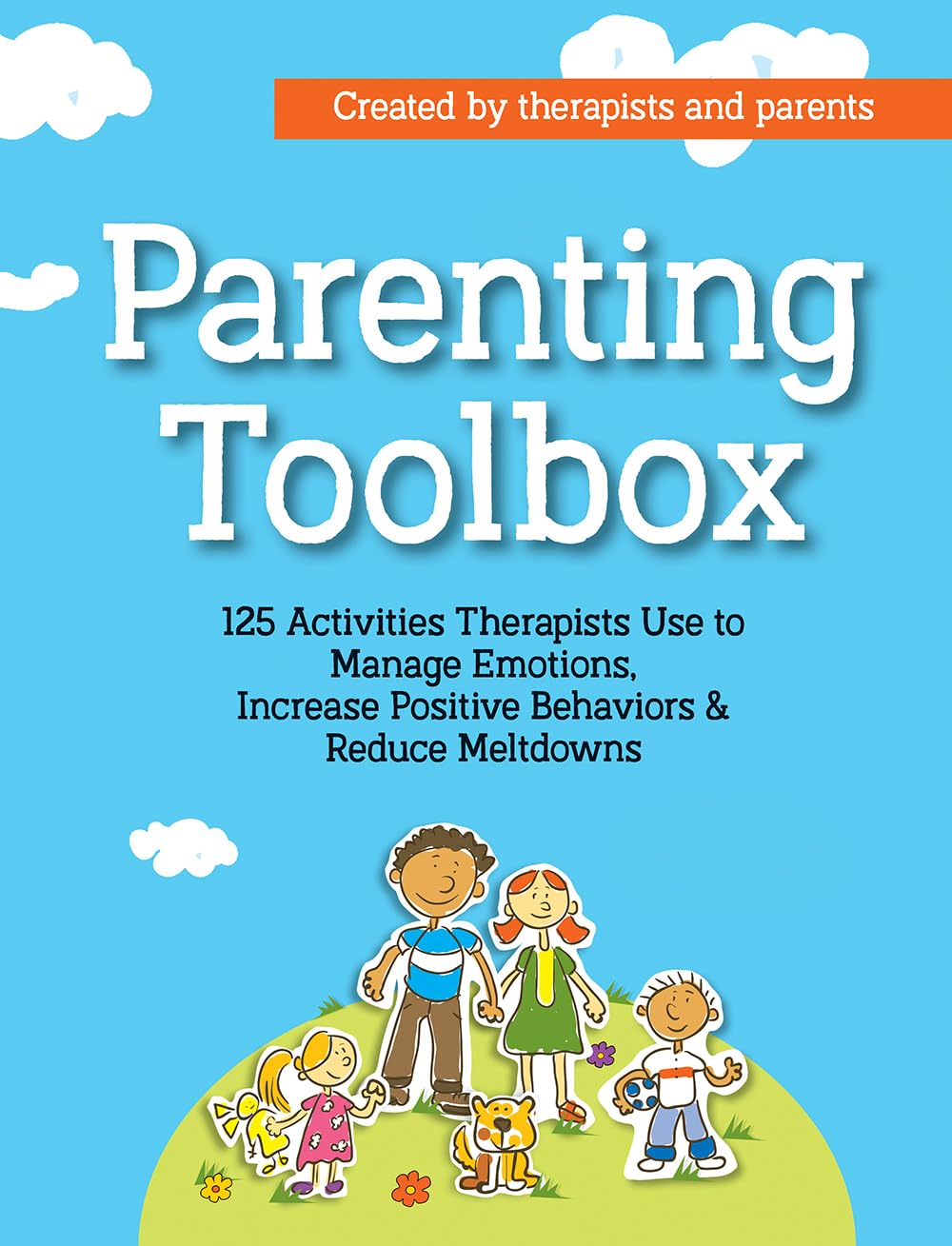
6. Parenting Toolbox
By Dr. Lisa Phifer, Laura Sibbald, Jennifer Roden
125 Activities Therapists Use to Reduce Meltdowns, Increase Positive Behaviors & Manage Emotions
The Parenting Toolbox is filled with easy-to-use strategies, backed by science, to overcome challenges and strengthen parent-child interaction – one worksheet, activity and exercise at a time.
Related: Best 7 Books On How To Control Your Emotions
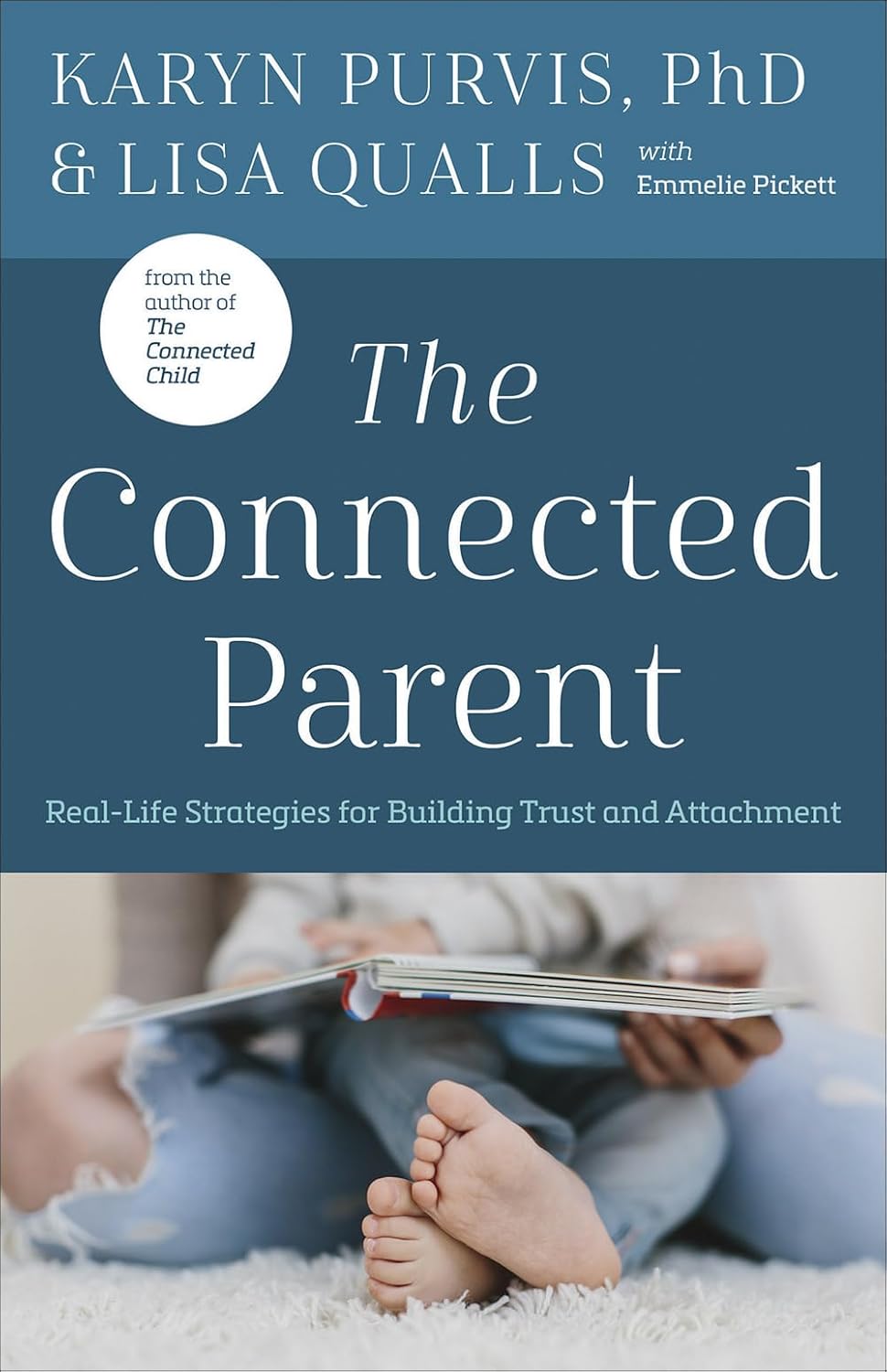
7. The Connected Parent
By Karyn Purvis PhD, Lisa Qualls
Renowned child-development expert Dr. Karyn Purvis gives you practical advice and powerful tools you can use to encourage secure attachment in your family. You will benefit from Karyn’s decades of clinical research and real-world experience. Coauthor Lisa Qualls demonstrates how you can successfully implement these strategies in your home, just as she did in hers.
You will learn how to simplify your approach using scripts, nurture your child, combat chronic fear, teach respect, and develop other valuable tools to facilitate a healing connection with your child.
The Connected Parent will help you lovingly guide your children and bring renewed hope and restoration to your family.
How Reactive Attachment Disorder Books Can Help
Reactive Attachment Disorder (RAD) books can be immensely helpful for individuals and families facing this challenge.
Here are a few ways in which these books can support:
1. Education and Understanding: RAD books provide valuable information about the disorder, its causes, symptoms, and effects on both the child and the caregiver. They explain the intricacies of attachment disorders and help readers gain a deeper understanding of what is happening.
2. Strategies and Techniques: These books offer practical advice, strategies, and techniques for managing and coping with RAD. They may provide tips on building secure attachments, promoting emotional regulation, establishing trust, and enhancing communication.
3. Validation and Empathy: Reading about others’ experiences can help individuals and families feel validated and understood. RAD books often include personal stories and narratives that offer empathy and reassurance, showing readers that they are not alone in their struggles.
4. Support for Caregivers: Caring for a child with RAD can be emotionally challenging, and these books offer support and guidance for caregivers. They provide insights into self-care, stress management, seeking professional help, and navigating the unique complexities of raising a child with RAD.
5. Hope and Encouragement: RAD books often highlight success stories where individuals and families have overcome challenges and developed healthy attachments. Such stories can provide hope, inspiration, and encouragement to those going through similar situations.
Conclusion
It’s important to remember that while books can be a great resource, they are not a substitute for professional help.
Consulting with mental health professionals or seeking support groups alongside reading RAD books can be particularly beneficial.
References
- professional, C.C. medical (no date) Reactive attachment disorder (RAD): Causes, symptoms & treatment, Cleveland Clinic. Available at: https://my.clevelandclinic.org/health/diseases/17904-reactive-attachment-disorder.
- Reactive attachment disorder (no date) Mayo Clinic. Available at: https://www.mayoclinic.org/diseases-conditions/reactive-attachment-disorder/symptoms-causes/syc-20352939 (Accessed: 06 July 2023).
